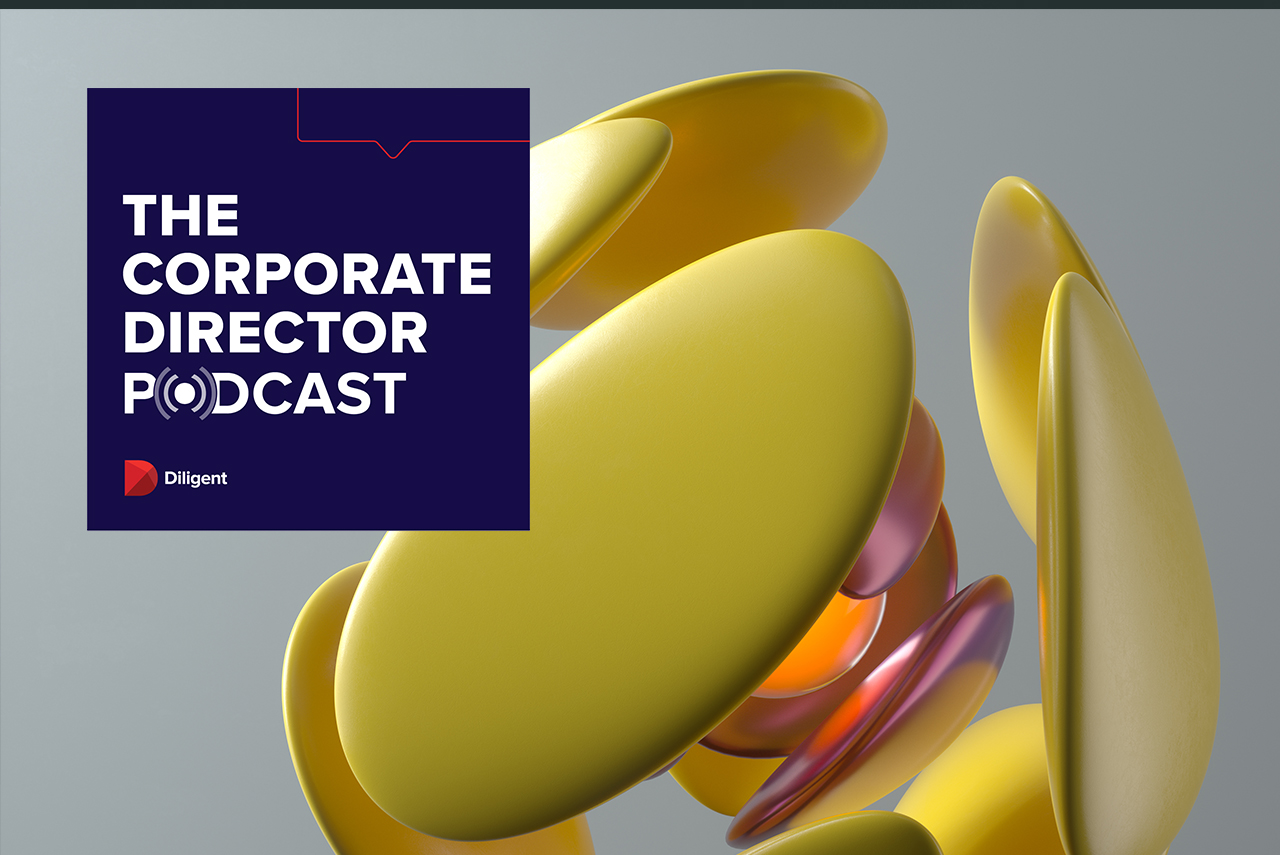Compliance & Ethics
How to foster a culture of compliance and growth while adjusting to new ways of working
Transform How Boards and Leaders Work Together
Meeting & Agenda Management
Seamlessly create, update and share agendas and board meeting materials.
Director Preparation
Access resources, view upcoming meetings and annotate board materials from any device.
Minutes & Actions
Easily capture minutes and actions during a meeting. Assign contributors and set automated prompts.
Signature & Resolutions
Send documents for approval integrated with DocuSign.
Virtual Data Rooms
Share and collaborate on documents with stakeholders in a secure room.
Secure Messaging
Have private conversations on a dedicated channel integrated for easy access.
Questionnaires
Complete self evaluations or D&O questionnaires in the same place as the boards material.
Director
Get new directors up to speed with the resources they need in one location.
Composition Planning
Identify gaps in board composition and recruit from a pool of 250,000 board members.
Building a Future-Proof Culture of Compliance
Following the global pandemic and “Great Resignation," many organizations now find themselves in a war for talent. Employees are no longer just interested in the dollar amount on their paychecks; they want to do meaningful work for companies whose values align with their own.
Given this shift, the role of the chief compliance officer (CCO) has become more critical than ever. As they address complex challenges related to ESG, working habits and geopolitics, CCOs face growing responsibility to drive the changes their companies need while fostering a culture of compliance and growth, where employees are empowered to make decisions aligned with their ethics.
I think we need to change how we view people who stand up and speak truth to power. We’re looking at a lot of potentially existential risk. It is critically important that people feel comfortable raising their hand, and that they feel supported not only within their organization, but by society as well.
— Cynthia Cooper, WorldCom Whistleblower
To be successful, CCOs must have access to essential resources, such as board support and compliance training for employees. Fortunately, there are toolkits available, stocked with everything a CCO needs to build, scale and run compliance. The Diligent Master Class for CCOs is one such resource designed by experienced CCOs to provide actionable frameworks that today’s compliance officers can use to navigate difficult situations, make effective decisions and influence key stakeholders.
Creating a culture where people feel comfortable speaking up is also essential. As Cynthia Cooper, the WorldCom whistleblower, explained at Modern Governance Summit, “I think we need to change how we view people who stand up and speak truth to power. We’re looking at a lot of potentially existential risk. It is critically important that people feel comfortable raising their hand, and that they feel supported not only within their organization, but by society as well.”
Effective CCOs must have strong working relationships and open communication with board members and other departments, including the audit committee.
Simply presenting a mountain of data to the board isn’t enough; the way CCOs present information is almost as important as the information itself, especially when it comes to ESG data. Conciseness is key, and so is perspective — it’s the job of the CCO to explain the data in a way that makes sense to the board. Failure to do so can result in misunderstandings and overreactions.
As a CCO, you need to understand what you are trying to achieve and then map a road to that support,” said Prohaska. “Show that your compliance program adds value, goes above and beyond, and is best in class. Putting that message out there helps you get that support from the CEO and board.
— Michelle Prohaska, Chief Compliance Officer, Nymbus
When it comes to demonstrating value, Michelle Prohaska, CCO at Nymbus, believes it’s important to articulate the “why” behind certain decisions.
“As a CCO, you need to understand what you are trying to achieve and then map a road to that support,” said Prohaska. “Show that your compliance program adds value, goes above and beyond, and is best in class. Putting that message out there helps you get that support from the CEO and board.”


As CCOs work with others in their organizations to build an enterprise-wide culture of compliance, the role of technology must not be overlooked.
Automated systems can help modern compliance professionals reduce the amount of manual labor needed to run a compliance department by screening for conflicts of interest, data discrepancies and other risks. However, it’s important that compliance professionals use automation as a ladder, not a crutch – regulators will still hold companies liable for even the most inadvertent lapses in their automated technologies.
Digital solutions, such as Diligent Compliance, combine the power of technology with the knowledge and training compliance teams needs to make informed decisions.





